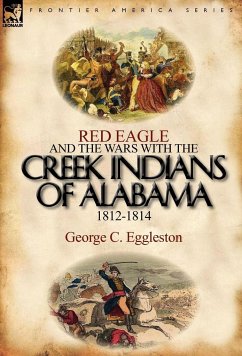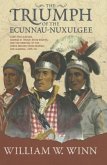Red Sticks, White Sticks and the war in Alabama The Creek Indian War, also known as the Red Stick War, took place between 1813-1814 and has been considered by many historians as part of the War of 1812. The Creek-or Muscogee-Indians of Alabama were effectively waging a civil war among themselves. One militant faction, the so called Red Sticks, proposed an aggressive return to the traditional life of their forebears and an end to treaties with and concessions to pioneer settlers represented by the United States government. The White Sticks, opting for peace, inevitably took the opposing view. Although the conflict began as one between the indigenous Indians, American forces, under the soon to be famous Andrew Jackson among others, were drawn into the conflict because much of the animosity was focussed on pioneer settlements. The conflict started in the usual manner of American Indian Wars-with the murder of settler families. The inevitable revenge and retribution that followed-and an escalation of the kind of merciless savagery the Americans had come to expect-culminated in the massacre of 500 settlers, friendly Indians, mixed blood Creeks and soldiers at Fort Mims in an attack led by the Red Stick war leader, Red Eagle. Other forts were also attacked. Panic spread through the region exacerbated by the inability of the Federal government to provide ready aid since it was engaged against the British and their Indian allies to the east. As a consequence much of the fighting was undertaken by militias from Tennessee, Georgia and Mississippi supported by White Stick allies. National hero, Davy Crockett, also served in this conflict. The war ended in a victory for the Americans and put Andrew Jackson on a path to the presidency and the White House. It was a disaster for the entire Creek Indian tribe-irrespective of their allegiances-who paid for the conflict through the confiscation of vast tracts of their traditional lands. Leonaur editions are newly typeset and are not facsimiles; each title is available in softcover and hardback with dustjacket.








